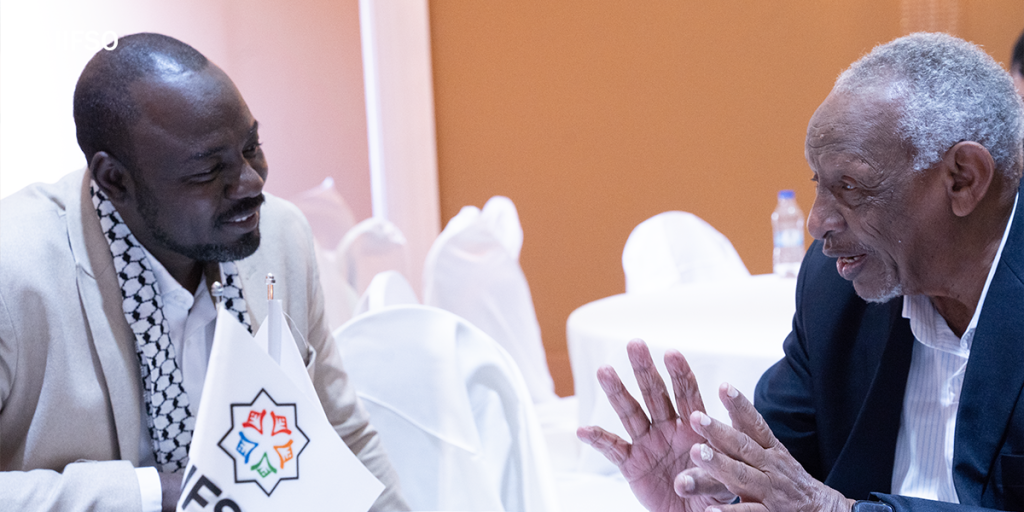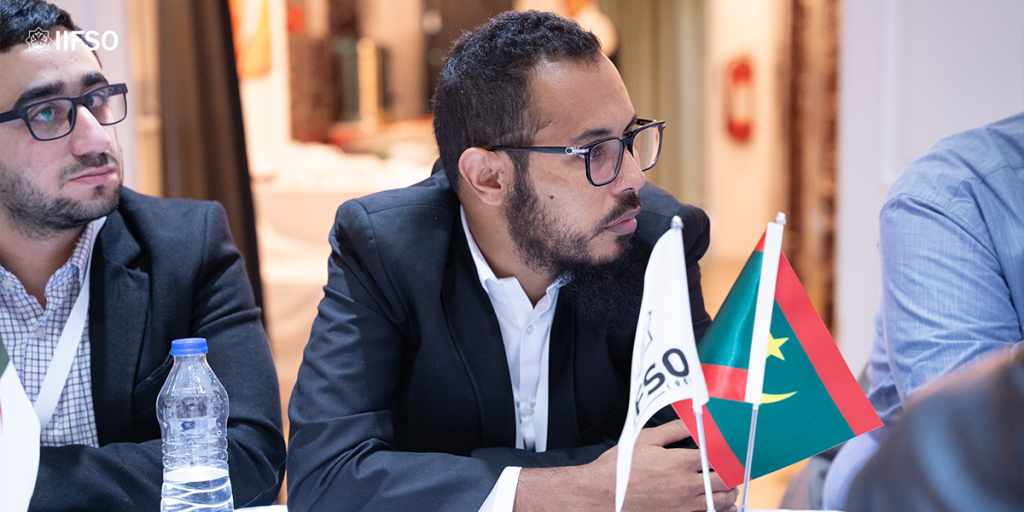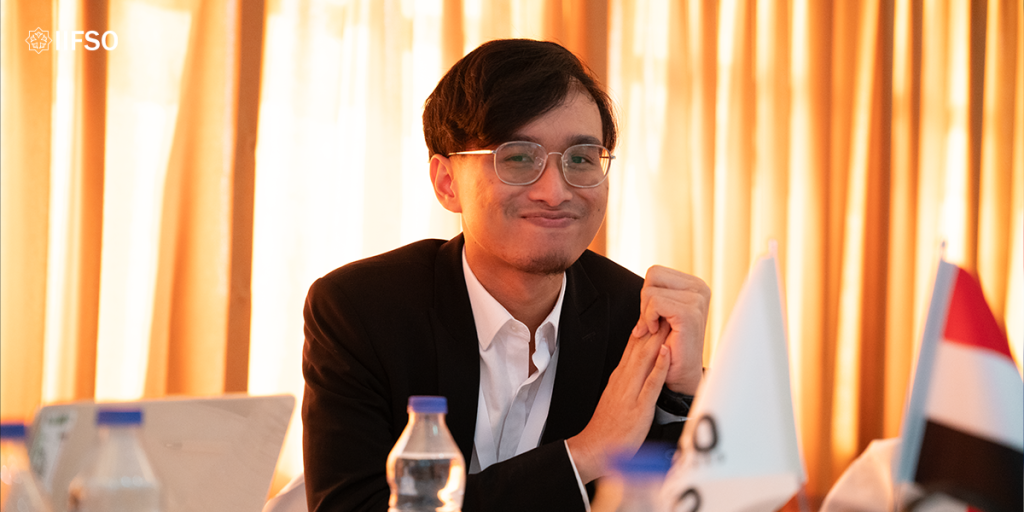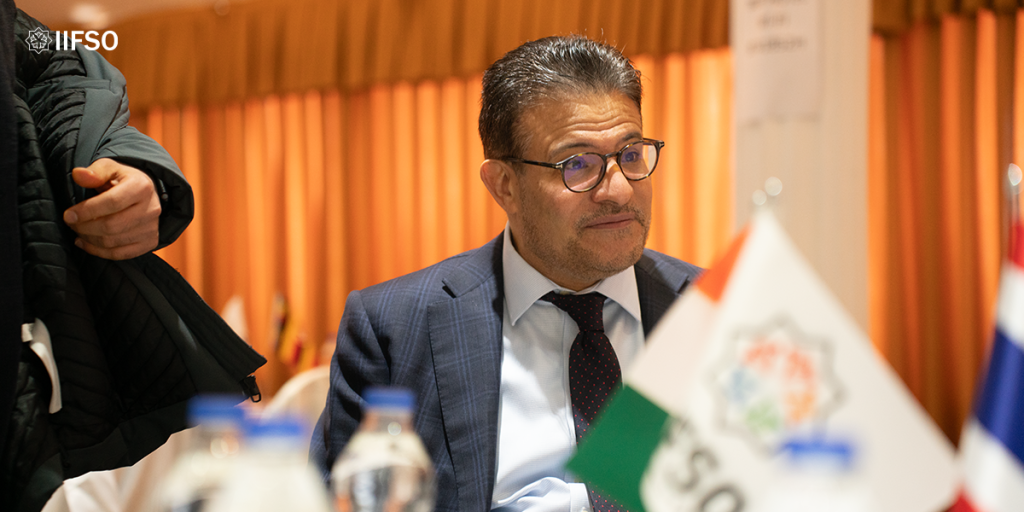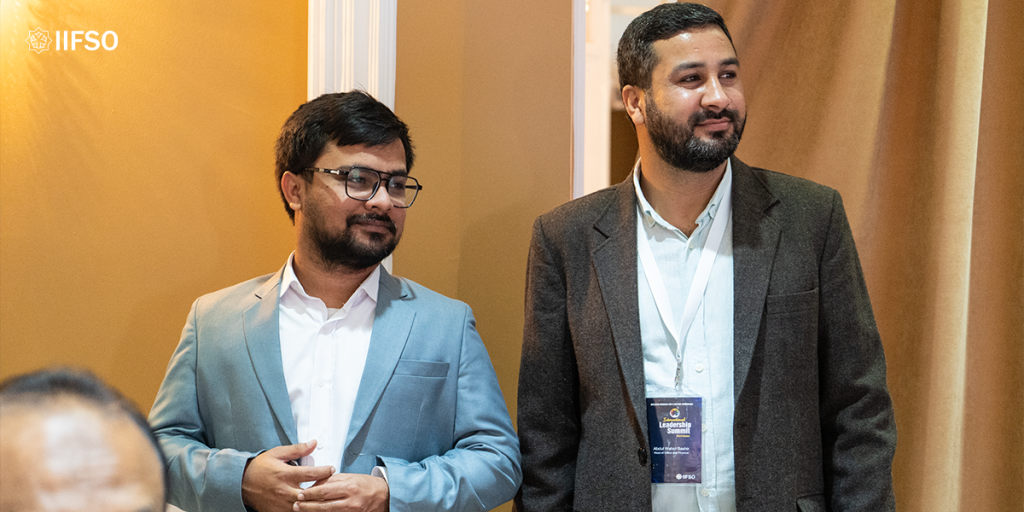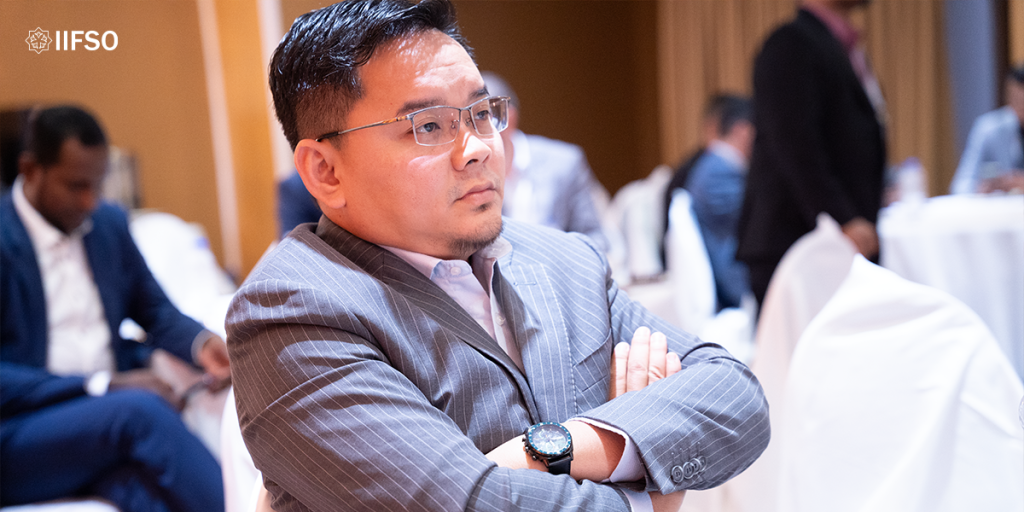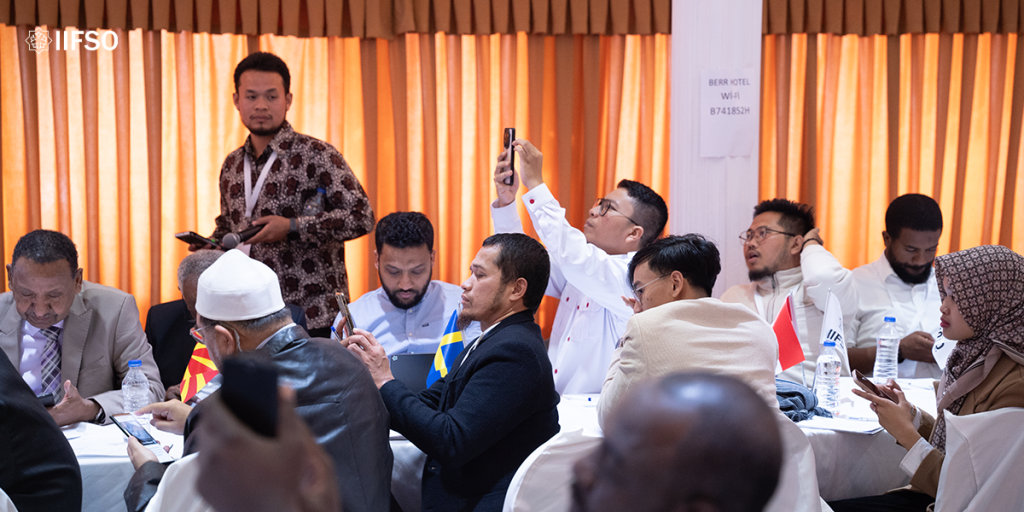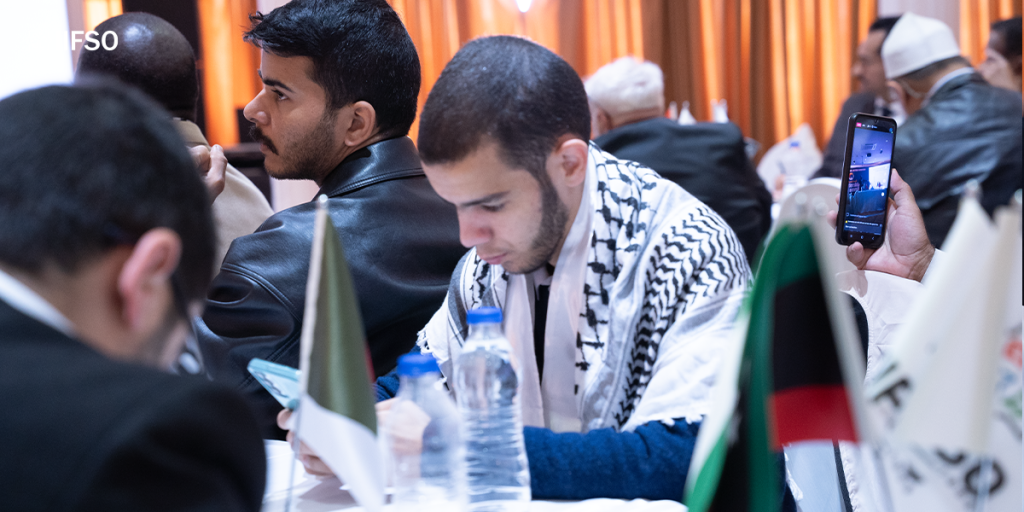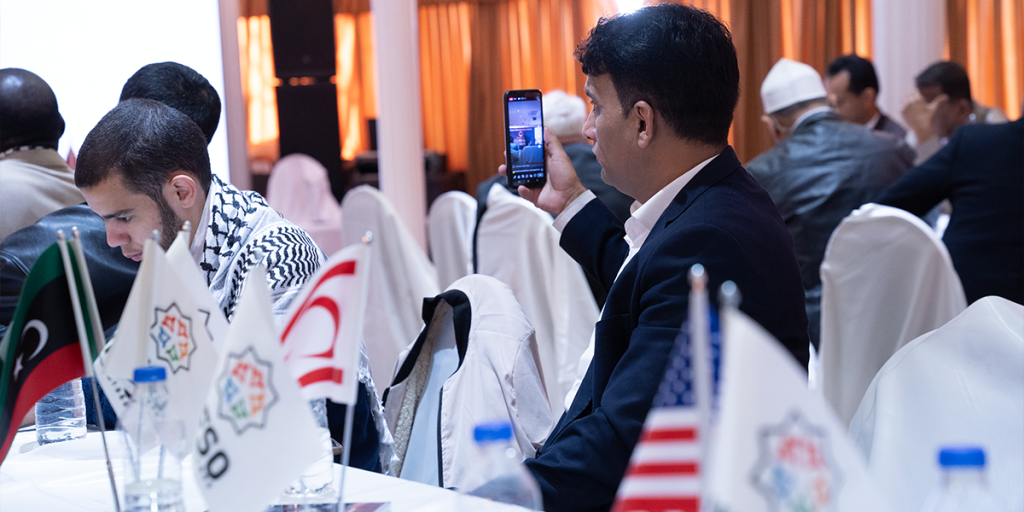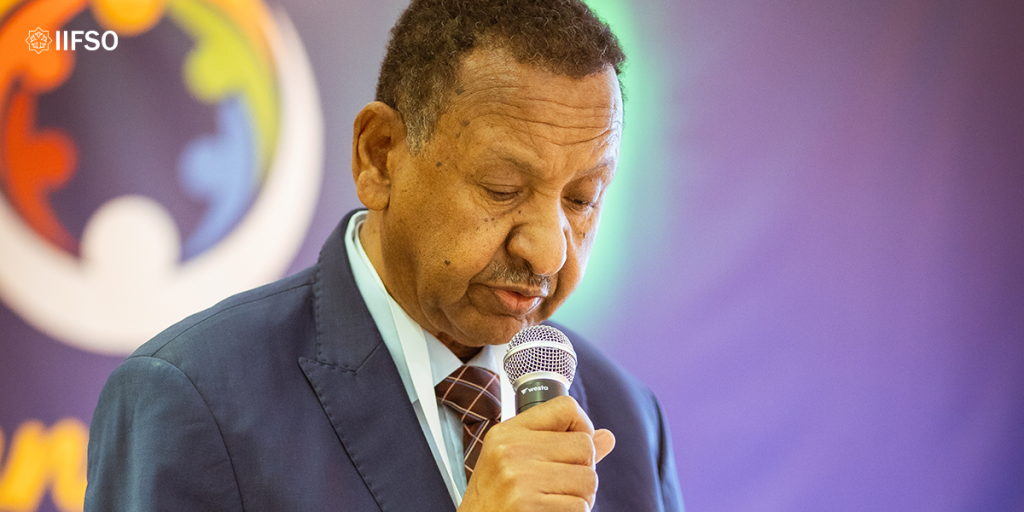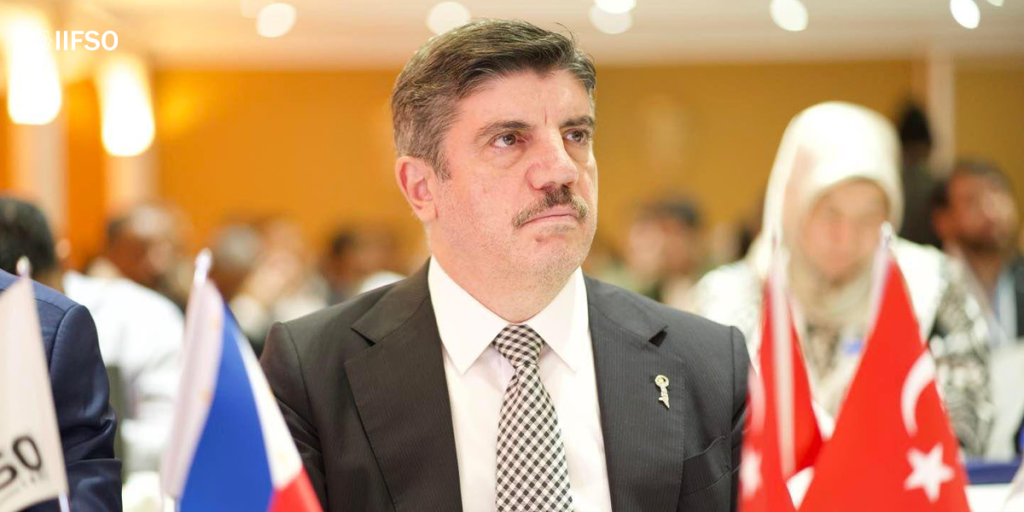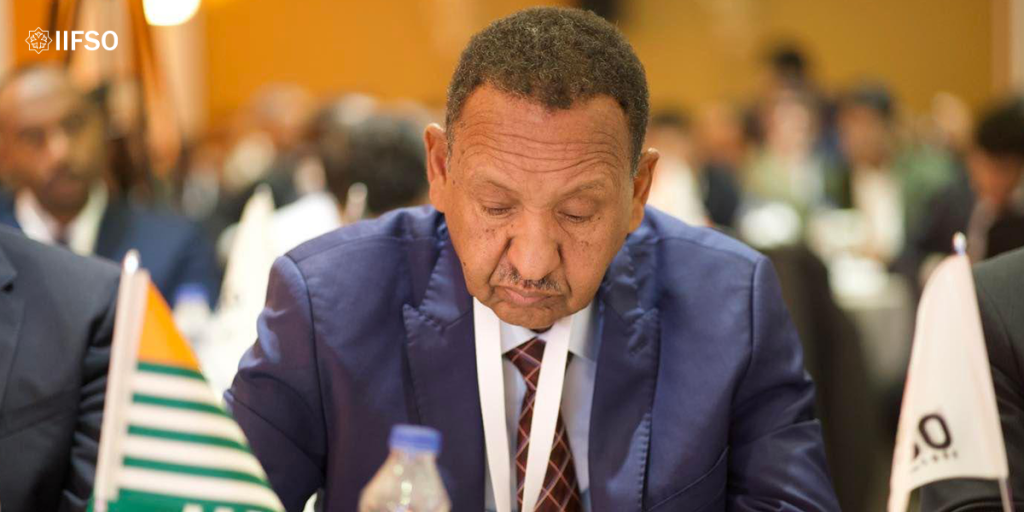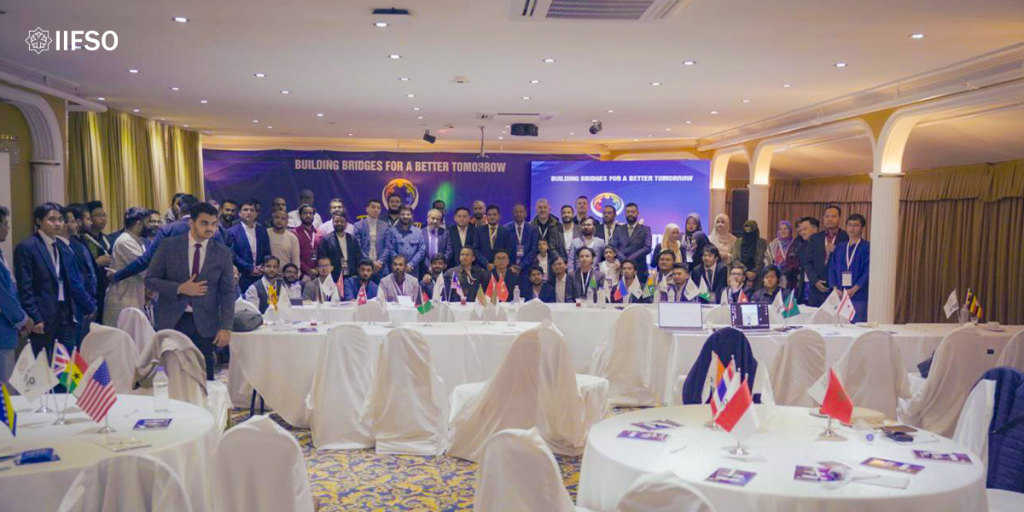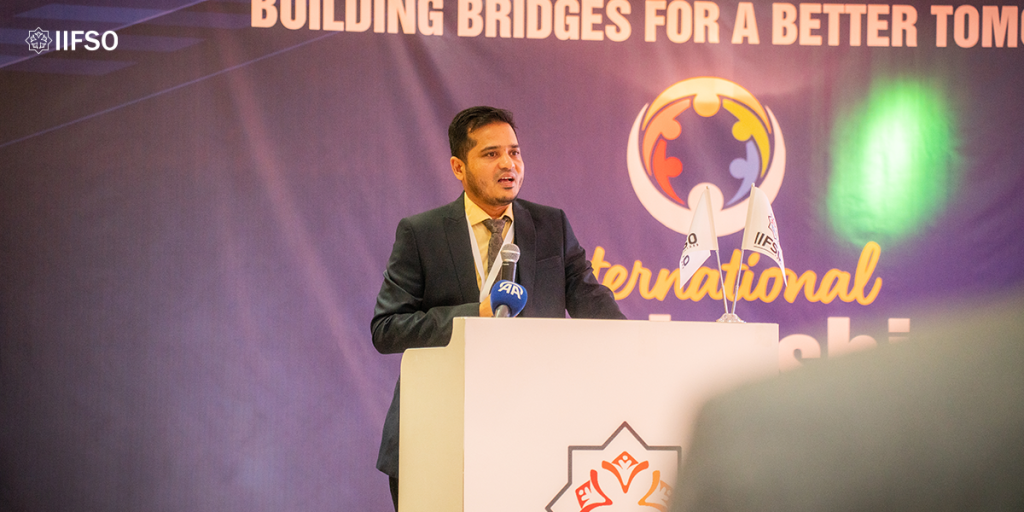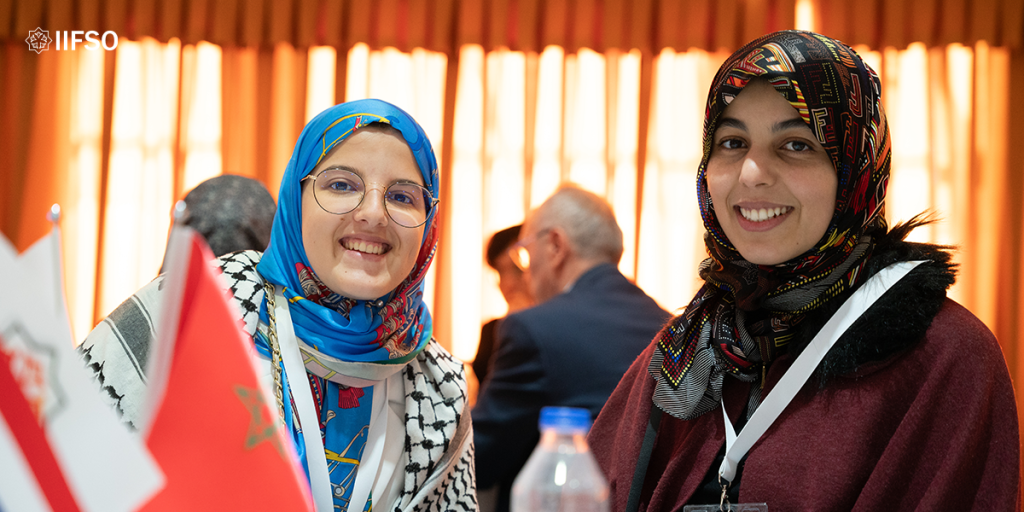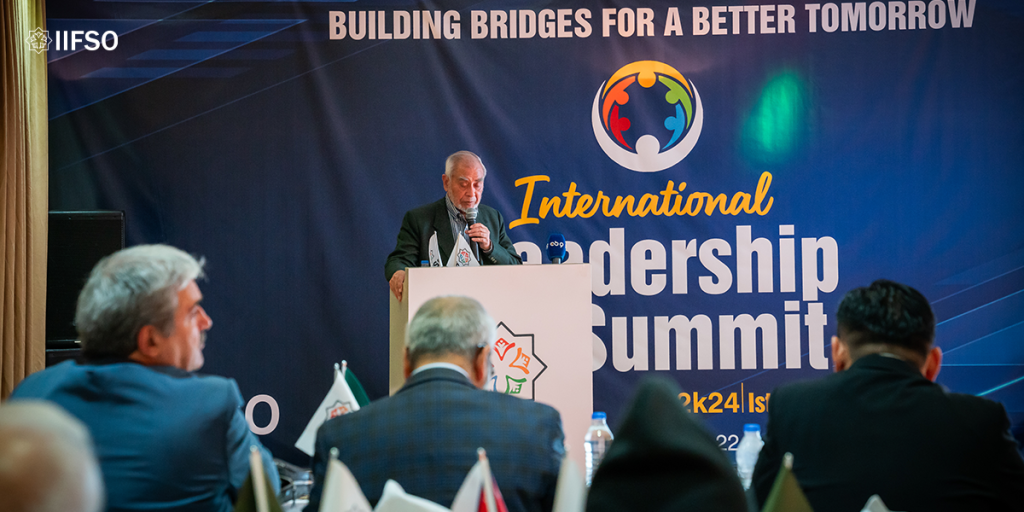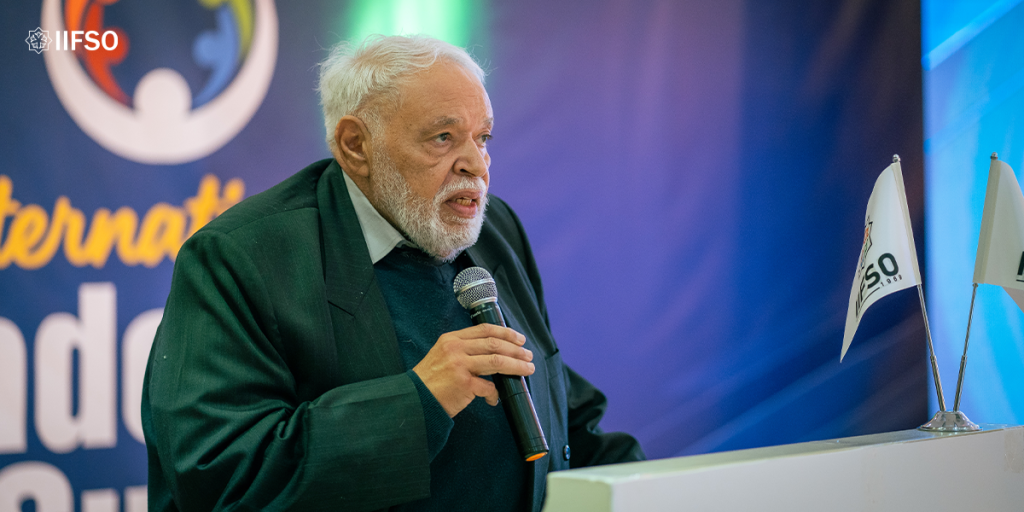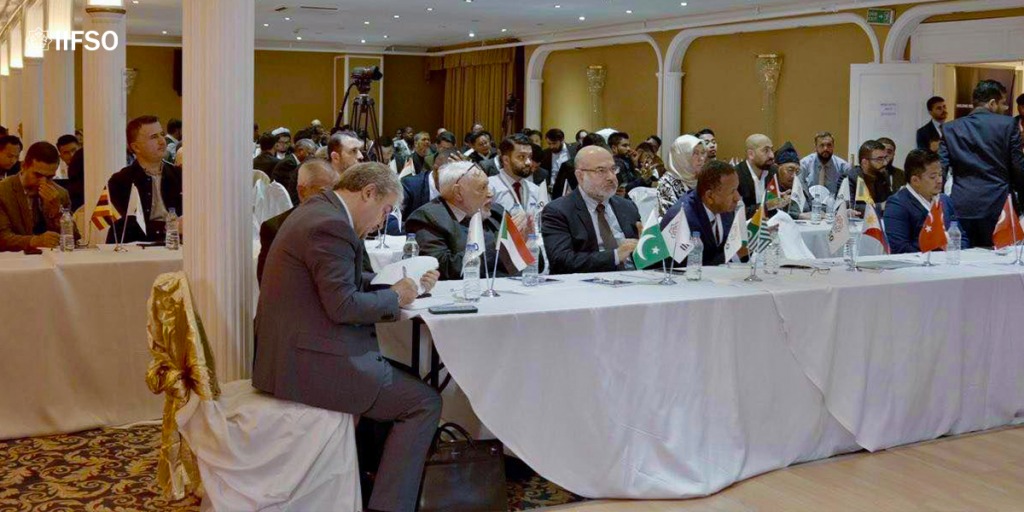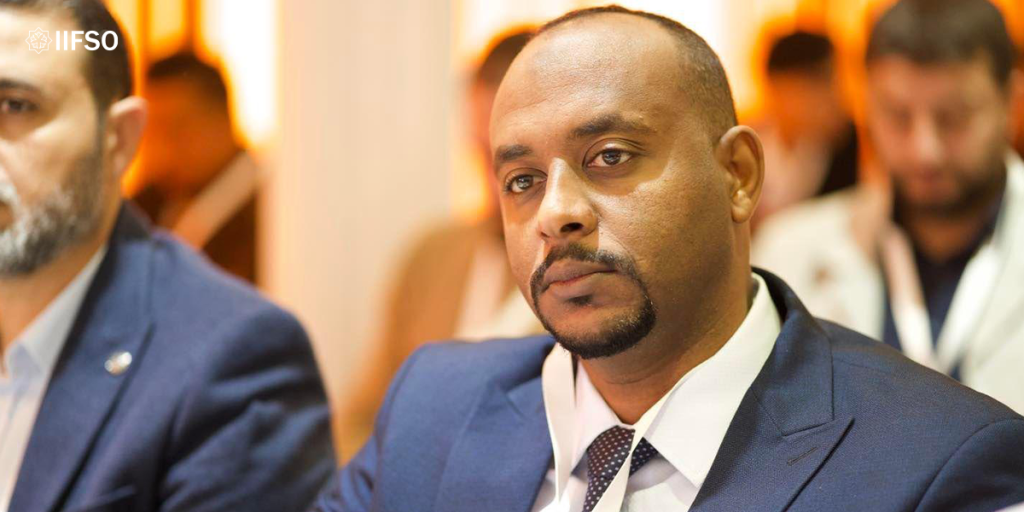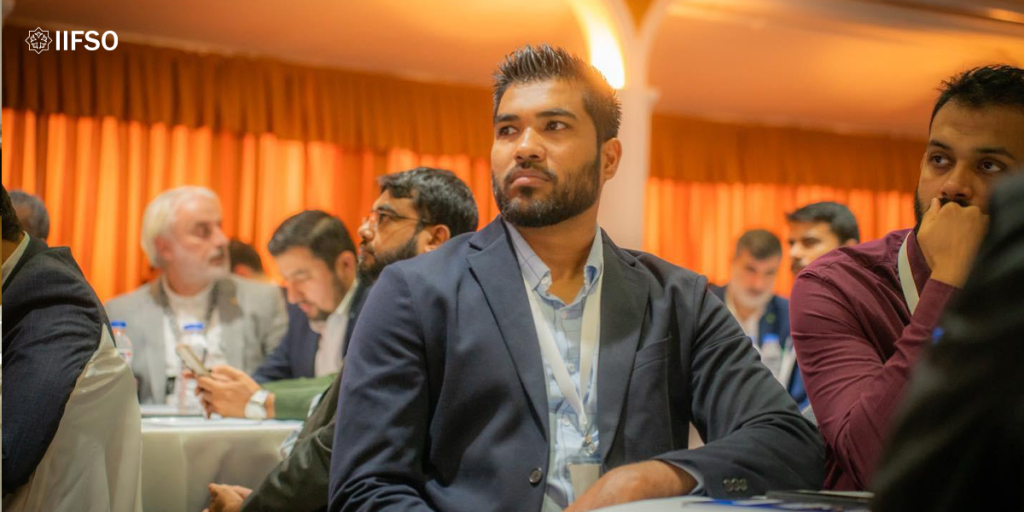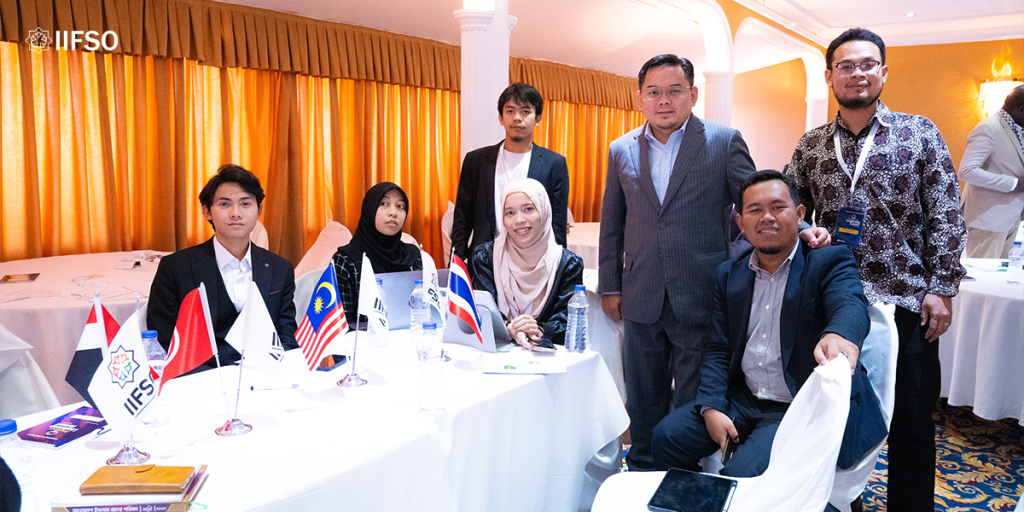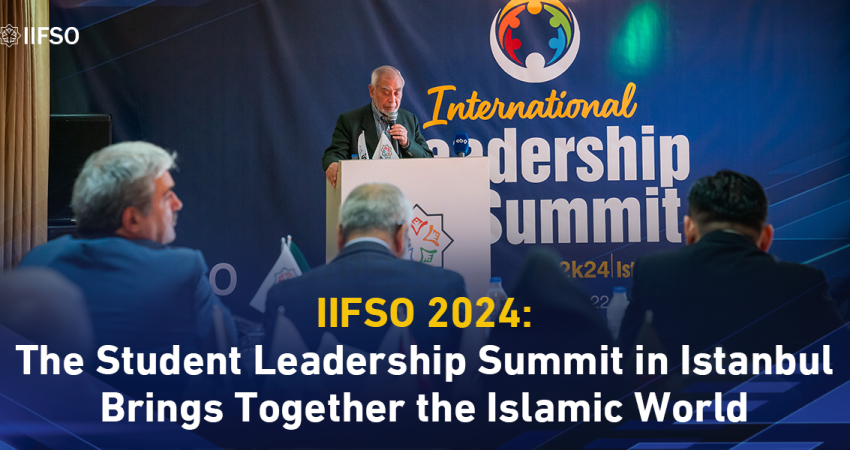

The “International Leadership Summit,” hosted by the “International Islamic Federation of Student Organizations” (IIFSO), took place on October 21 and 22, 2024, in Istanbul, Turkey.
This impactful event brought together approximately 130 youth and student leaders from 65 organizations across 40 countries, providing a platform to address pressing issues and challenges facing the Islamic world. Attendees engaged in meaningful discussions on enhancing the role of student and youth organizations in tackling these challenges and advancing the shared goals of the Ummah.
Dr. Mustafa Osman Ismail, former Sudanese Minister of Foreign Affairs, stated that this Ummah was created by Allah to lead, but he emphasized that leadership comes with a price that we must be willing to pay. He noted that many Muslim countries are bearing the cost of this resurgence, and he pointed out that what we see in places like Gaza, Sudan, Kashmir, Tunisia, and elsewhere is part of that price. Therefore, he urged that IIFSO must assume its rightful leadership role.
Similarly, Salih Turhan, President of the Anatolian Youth Association, remarked that the goal of this conference is to plan for the future, as he asserted that the youth are the future. He noted that Zionism doesn’t only target Gaza or Palestine; rather, its ambitions extend far beyond that. Additionally, he pointed out that the Zionists want us to be captives of the current situation, which prevents us from thinking about our future. Furthermore, he highlighted that the Islamic world is facing many challenges, and thus we are here to contribute something to our Ummah (Islamic nation).
Moreover, Yasin Aktay, former advisor to AK Party Chairman, mentioned that IIFSO had been somewhat dormant in recent years, but he noted that today we are witnessing its revival. He recalled that when he was in the Imam-Hatip schools, he would read the books translated for us by IIFSO, which shaped his awareness. Furthermore, he remarked that after the fall of the Caliphate, we endured a century that was the most difficult in our history, and he stated that the greatest wound is the absence of a unifying umbrella for our Ummah for the past 100 years. Consequently, he affirmed that we are here to support active organizations working to bring our Ummah back on the path of unity once again.
In addition, Mohsin Ansari, President of the Islamic Circle of North America (ICNA), expressed that your brothers in North America share your pain and are doing everything within their power to support and assist their brothers in Gaza. He stated that we gathered in thousands across many public squares in the United States, chanting for the freedom of Palestine. He also remarked that after the events of 9/11, many Muslims were afraid to openly express their faith, but today, after much effort, we can all stand publicly in America and call for the freedom of Palestine and the support of our brothers in Gaza. Furthermore, he added that we did not just gather in front of the White House; rather, we also flooded the communication channels of Congress members and government bodies, rejecting the ongoing genocide and applying pressure to stop it.
Additionally, Dr. Mostafa Tolba, former member of the IIFSO Executive Committee, recalled his meeting with Dr. Mustafa Osman when he took over the offices for English and Arabic-speaking students in IIFSO. He shared that they started with small numbers, and soon they grew to thousands. He also remembered his first meeting with Mr. Khaled Mashal and Mr. Khairat Al-Shater, who were both young men at the time, and he noted that they realized then that these individuals would become great leaders in the future. He likened IIFSO to a mother with thousands of children across this vast world, stating that it will continue as an active institution shaping the future.
Furthermore, Dr. Rafik Abdessalem, Former Tunisian Foreign Minister, acknowledged that we are going through a difficult phase, as we are facing various types of challenges and crises. He stated that what is happening in Gaza and Lebanon is not merely local events, but rather regional challenges with repercussions that affect the entire world. Thus, he called for the Islamic world to need new, young, and active leadership, equipped with political, practical, and administrative awareness, to confront the challenges facing Muslims everywhere. He emphasized that political awareness is extremely important to understand what is happening around us and to properly address ongoing issues. Moreover, he asserted it is essential to develop an aware and leadership-oriented character to overcome our current problems, as the Islamic world has the potential to rise, as emphasized by Ibn Khaldun.
Likewise, Mia Golam Parwar, Secretary General of the Islamic Jamaat of Bangladesh, remarked that it was the youth who led the revolution in Bangladesh that overthrew Sheikh Hasina. She pointed out that despite the oppressive policies, the youth continued to chant for freedom and ultimately toppled Hasina, thus opening a new era for the country. This, she stated, is a living example of the power of youth and what they can achieve with their will and capabilities. Furthermore, she noted that IIFSO has always been a platform for cooperation across the Islamic world, asserting that all events confirm that Islam is the hope for the world to be saved from injustice.
Moreover, Ömer Faruk Korkmaz, former advisor to the Prime Minister of Turkey, affirmed that we are one Ummah, and he emphasized that you are here as guests of our master Abu Ayyub al-Ansari (radiya Allahu ’anhu), Sultan Mehmed the Conqueror, and Sultan Abdul Hamid II. He expressed gratitude for our brothers who contributed greatly to IIFSO, including Dr. Ahmad Totonji and Mr. Mustafa Tahhan. Additionally, he emphasized that IIFSO is a strong and important organization, and while there are other active institutions, they do not have the same level of connection across generations. Thus, he suggested that IIFSO should work on gathering talents from all fields, especially businessmen.
Furthermore, Mohd Hasbie Muda, Youth Chief of the Malaysian “AMANAH” Party, pointed out that the fragmentation of the Ummah and its political divisions hinder any action we take. He noted that when we look at any indicator to see where our countries stand politically, economically, and in all areas, we find ourselves at the bottom of the list, and this situation must not continue. Consequently, he concluded that we will change this difficult reality through the efforts of the youth.
In the same vein, Asif Luqman, Head of External Relations of the Islamic Jamaat in Pakistan, stated that we live in a world of narrative warfare. He added that in the ongoing Gaza war, for the first time, we have triumphed over the Zionist narrative. Thus, he asserted that we must develop strategies that are scientific, not emotional, and that we need many young specialists in various fields to represent the entire Ummah, not just limited national projects. He emphasized that this responsibility falls on IIFSO, and he expressed confidence that they can fulfill it, God willing.
Moreover, the former secretary-general of the Islamic Group in Lebanon, Azzam al-Ayoubi, noted that while you are working towards building a better future, there are those actively trying to prevent you from realizing it. He observed that though the “Arab Spring” faced its autumn and winter, Allah never abandons the efforts of the sincere, and thus we witnessed the “Al-Aqsa Flood.” This flood reminds us not to retreat and not to assume that your goals are impossible to achieve. Therefore, he urged everyone to remain steadfast in the belief that “your nation is one,” and here you stand as a true embodiment of that principle.
In addition, Mansur Özdemir, Advisor to the Presidency for Turks Abroad and Related Communities (YTB), stated that our leaders established IIFSO to strengthen global Muslim relations, promote cooperation, and strive towards a new global order. He highlighted that IIFSO was founded at a decisive moment during the Cold War, and today’s conference comes at another pivotal moment. He described the “Al-Aqsa Flood” as a significant turning point in the history of the Muslim nation. Thus, he concluded that the world order has failed, and the “Al-Aqsa Flood” presents us with an opportunity to build a just order—one we should not squander.
Furthermore, Mehmet Eşin, the Chairman of the Huda Party in Istanbul, remarked that the Muslim Ummah has the potential to rise, but he warned that there are forces actively working to obstruct its progress. While we are using English as our medium of communication at this conference, he stressed that it is crucial that we agree on one of our native languages for future events to better reflect our identity. He stated that in today’s world, our focus should be on advancing technology, just as our predecessors once led in pioneering innovations. Consequently, he urged that our adversaries unite against us, and we too must stand united in response.
Finally, Syeed Abdullah Muhammad Taher, Nayeb-e-Ameer (Vice President) of Bangladesh Jamaat-e-Islami, asserted that the IIFSO has long served as a beacon of knowledge and unity for Muslim students across the globe. He cautioned that sectarianism and political divisions weaken our collective strength and undermine our ability to present a united front on the world stage. Therefore, he urged everyone to prioritize the values of tolerance, understanding, and cooperation, recognizing that our diversity is a source of strength, not weakness. He called for intensifying our efforts to boycott Israel and all those who enable its oppression of the Palestinian people and to actively lobby our government to adopt a firm stance against Israel.
Lastly, Mr. K.K. Suhail, a leader of Jamaat-e-Islami Hind, concluded by stating that we live in a liberal world that targets our culture. He warned that our foes are working to erase our shared Islamic historical memory. He emphasized that the most important act of resistance we can undertake is to reclaim this shared memory. He reminded us that as our Prophet ﷺ told us, our Ummah is like “one body,” and it must remain so.
In addition to the speakers’ remarks, the conference included meetings, workshops, and discussions centered around the global challenges facing the Islamic Ummah, as well as strategies for peace, stability, and development. It also explored ways to enhance the performance of youth in the Islamic movement by reviewing available frameworks to boost their productivity.
In the final statement of the summit, participants reaffirmed their solidarity with the Palestinian people and their suffering, condemning the shameful positions of many governments around the world regarding the aggression against Gaza. They emphasized the importance of supporting global student and youth movements that advocate for the Palestinian cause and call on governments to take more serious stances against the ongoing aggression.
Participants also expressed their solidarity with the Sudanese people, who are facing hardships and famine amidst international media silence, highlighting the necessity of national unity in Sudan, and rejecting foreign
interventions. They stressed the importance of intensifying efforts to support the just causes of the Islamic Ummah, as seen in East Turkestan, Kashmir, and Burma, while reaffirming the collective responsibility that reflects the unity and shared values of the Ummah.
